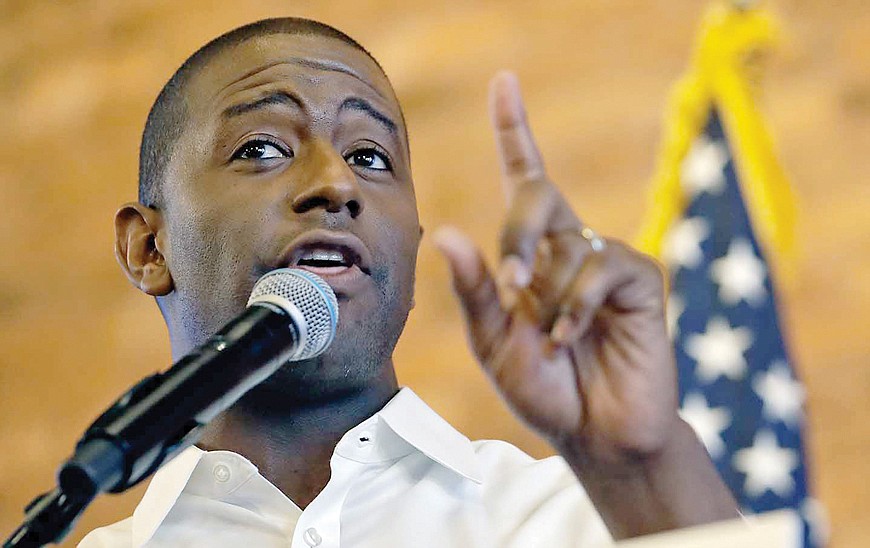- April 18, 2024
-
-
Loading

Loading

Democratic gubernatorial candidate Andrew Gillum is like millions of Americans and Floridians. He believes health care is a right, and he believes the “state” should provide medical care to every Floridian no matter the circumstances. If you need it, you’ll get it.
What’s more, he wants Florida to accept big, short-term subsidies from the federal government — that is, money from all U.S. taxpayers — to expand Medicaid (the health insurance and health care program for the poor) to millions more Floridians. He embraces Sen. Bernie Sanders’ idea of “Medicare for all” — again, taxpayer-funded health care and health insurance for all.
Let’s just call all that what it is: socialized, government-controlled medicine, when “the state” takes money from everyone (by force of law) and decides how that money should be redistributed and spent on your medical needs.
Sadly, this is mainstream thinking in America. Indeed, if you take the 30,000-foot view of politics today, the two major political parties are degrees of the same policies and beliefs. The candidates in both parties, with rare exception, argue over the degrees to which government should control the economy, your lives and how much of your wealth and property should be redistributed.
Republicans tend to favor less government intervention. Today’s Democrats, driven by the progressives, want all-out state control — especially to equalize outcomes and force those who have succeeded to pay more of “their fair share.”
Rare is the major party candidate who even questions whether controlling our lives is the proper role of government. Even rarer is the candidate who frames his or her run for office as a choice between statism or liberty, between the all-controlling state or the limited government the founders codified in the Constitution.
Certainly, Democrat Andrew Gillum is not going to question the role of government. He wants a lot more of it.
Just consider his position that health care — medical care for all — should be a right.
But what is a “right?” For one, and most important, a right does not impose an obligation on others. The exercise of a right by one does not diminish the rights of another. Take free speech, when you exercise your right to speak, neither you nor the government is imposing an obligation on anyone. The government is not requiring others to provide you with an auditorium, microphone or radio or TV station to broadcast your speech.
So imagine how you would feel if you had to pay to provide Andrew Gillum or his opponent, Republican Ron DeSantis, with all of the modern means to communicate his campaign speeches. The right to free speech isn’t the right to impose an obligation on another.
Now apply the same idea to health care. Economist Walter Williams does this best:
“Say Harry suffers from diabetes, and he has no means to pay a laboratory for blood work, a doctor for treatment and a pharmacy for medication. Does Harry have a right to XYZ lab’s and Dr. Jones’ services and a prescription from a pharmacist?
“And, if those services are not provided without charge, should Harry be able to call for criminal sanctions against those persons for violating his rights to health care?
“You say, ‘Williams, that would come very close to slavery if one person had the right to force someone to serve him without pay.’ You’re right.
“Suppose instead of Harry being able to force a lab, doctor and pharmacy to provide services without pay, Congress uses its taxing power to take a couple hundred dollars out of the paycheck of some American to give to Harry so that he could pay the lab, doctor and pharmacist. Would there be any difference in principle, namely forcibly using one person to serve the purposes of another?
“Most Americans, I would hope, would be offended by the notion of directly and visibly forcing one person to serve the purposes of another.”
Williams concluded his analogy: “To argue that people have a right that imposes obligations on another is an absurd concept.”
But that is exactly Andrew Gillum’s political philosophy and conviction. The state supersedes your rights to life, liberty, property and happiness.
This is what voters must weigh in their choice between Gillum and DeSantis for governor. To what degree do voters want “the state” to impose obligations on them to serve the purposes of others: Less (DeSantis) or a lot (Gillum)?